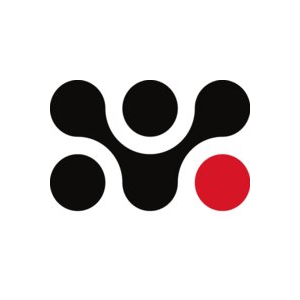Updated October 23, 2025
The best universities in Japan [2025]
Japan is as well known for its beautiful and distinct culture as its keenness to technology, innovation, and world-class education.
The country has a long list of higher education institutions, and it houses some of the best universities in the world. In fact, many people from abroad come to Japan solely to study at one of these schools.
Today, I’ll introduce some of Japan’s best universities, and also talk about why a good college education is important in Japan, and give you some background information about the entrance system.
Let’s dive right in.
In this article: 📝
Top Universities in Japan
As I mentioned in my post on finding the best universities in Japan, Japan is no short of great international universities, as there are currently over 780 universities in the country.
These universities are also much more affordable compared to other good options like the United States. In fact, some of the best colleges in Japan are also some of the best in the world.
Speaking of which, let’s now take a look at some of Japan’s best universities and introduce each one.
University of Tokyo
Established in 1877, the University of Tokyo was the end result of a merger between Tokyo Medical School and Kaisei School.
The University of Tokyo has a long history of stellar education. In fact, 15 of Japan’s past prime ministers have graduated from this university. Also known as UTokyo, the school spans three main campuses and also has two hospitals.
UTokyo has 10 main academic faculties and 15 higher education institutions, 5 of which are graduate schools. It has a diverse selection of specialties as the university especially excels at arts and humanities, engineering, business, computer science, sociology, and medicine.
The University of Tokyo is Japan’s first international university, and it has consistently ranked among the best universities in the world. As a matter of fact, UTokyo has just recently ranked in 28th place in Times Higher Education’s World University Rankings 2023 list.
Among the University of Tokyo alumni are eight Nobel Prize winners as well as five astronauts.
Kyoto University
Kyoto University is another well-established university in Japan, as it was founded in 1897 under the name “Kyoto Imperial University.” The university has three main campuses in and around Kyoto and also has many research facilities scattered across Japan.
The school also has a hospital and is known for its long list of distinguished alumni, 13 of which are Nobel Prize winners.
There are 10 faculties at Kyoto University, along with 18 graduate schools. Although the university has departments in a wide range of areas, it mainly excels at medicine, law, and engineering, all of which are the first faculties the university was initially made up of.
Kyoto University is highly regarded as one of the best universities in Asia, and it also has a top 100 global university status as it ranked in the 55th spot in Times’ World University Rankings.
Tohoku University
One of the oldest imperial colleges in Japan, Tohoku University is a prestigious school that was established in 1736.
The university is known for its accepting culture, as it was the first higher education institution in Japan that allowed female students to attend. Tohoku University continues to promote openness and diversity by offering many international degree programs for international students that are taught entirely in English.
The university is located in the city of Sendai and has five main campuses, with each of them housing a different faculty. Tohoku University offers medicine, law, social sciences, science and engineering, and agriculture programs and provides top-notch education in each of these fields.
Tohoku University has a long list of famous alumni of top political figures and scientists in Japan, and it was selected as the #1 best university in Japan by Times Higher Education’s Japan University Rankings list.

Institute of Science Tokyo
Institute of Science Tokyo was established in 1881 under the name Tokyo Vocational School and is also known as Tokyo Tech today. The university was called Tokyo Institute of Technology until its name was changed at the beginning of 2023.
Tokyo Tech has three main campuses, two of which are in Tokyo and one in Yokohama. Across these three campuses, the university has six faculties, which are Engineering, Science, Materials and Chemical Technology, Life Sciences and Technology, Computing, and Environment and Society.
There are over 40 degree programs at Tokyo Tech, all of which provide an outstanding education as around 90% of the school’s undergraduate students continue their academic journeys to pursue graduate-level degrees.
The school is the most prestigious technical university in Japan, and it also ranks as Japan’s 3rd best university according to Times Higher Education. Although the primary language of Tokyo Tech is Japanese, the university also has programs taught in English, with 13% of its students being international students.
Osaka University
Established in 1931, Osaka University first began its academic journey as a medical school and later became Osaka Imperial University with more faculties joining. The school was later named Osaka University after WWII.
Currently, Osaka University has 11 faculties and 16 graduate schools in addition to two university hospitals, four libraries, and six research centers scattered across Japan.
Osaka University’s education excels in a wide range of fields, such as physics, life sciences, engineering, medicine, and sociology. The school is also known for its high entry standards and a notoriously difficult entry exam.
The university is among the highest regarded higher education institutions in Japan as it’s the 3rd best university in Japan, sharing the spot with the Tokyo Institute of Technology according to Times Higher Education.
Hokkaido University
Founded in 1876 as Sapporo Agricultural College, Hokkaido University is one of Japan’s oldest universities. It’s the first university in Japan to issue bachelor's degrees.
The university’s main campus is located in the vibrant city of Sapporo, and there’s a second campus in the neighboring city of Hakodate. The university is also known for having the largest land, as the two campuses cover a total of 660 km2.
There are 12 undergraduate schools at Hokkaido University in addition to 12 graduate schools. The school boasts a total of 11.455 undergraduate courses in various fields, but the school is mainly known for its medicine, business, life sciences, and sociology programs.
Among Hokkaido University’s famous alumni are Nobel Prize winners and astronauts.
Kyushu University
Kyushu University was founded in 1903 and is one of Japan’s seven national universities. With over 18,000 students, it’s also among Japan’s biggest. The university is located in Fukuoka.
There are 16 faculties with 11 undergrad and 18 graduate schools at Kyushu University. The school has over 2000 international students and has partnerships with over 100 institutions worldwide, which provides students with great opportunities for exchange programs and studying/interning abroad.
Although the school has programs in pretty much all fields, the specialties of Kyushu University are arts and humanities, sociology, business, and medicine.
Among Kyushu University’s alumni are famous Japanese politicians and doctors, including Hakaru Hashimoto, the doctor who discovered the Hashimoto disease.
Kyushu University is a highly regarded institution as it has ranked in the 7th spot in Times Higher Education’s Japan University Rankings.
University of Tsukuba
The University of Tsukuba was established in 1973 when the former Tokyo University of Education was moved to the city of Tsukuba.
In a short period, the school became one of the most highly regarded universities in Japan and currently houses one-third of all of the research facilities that exist in Japan.
The University of Tsukuba has 25 undergraduate colleges and nine graduate schools, all of which offer programs in various fields. The school is mostly known for its top-tier education in the fields of business, medicine, sociology, and life sciences.
The university has great international connections, and there are over 3000 international students currently studying.
More than 70 of the school’s graduates have participated in the Olympic games, and the school also has three Nobel Prize winners in physics and another one in chemistry in their alumni.
The University of Tsukuba is known as one of the best universities in Japan, and it was selected as the 9th best university in Japan by Times Higher Education.
Keio University
Founded in 1858, Keio University is known for being Japan’s first private higher education institution. The university is of considerable size, with over 33,000 students and 2,250 academic staff.
Keio University has six main campuses for undergraduate and graduate programs and five additional campuses solely dedicated to academic research. The campuses are located in and around Tokyo and Kanagawa.
There are 10 faculties and 14 graduate schools at Keio University, as well as 30 research centers. While the university has a vast selection of degree programs in various fields, it especially shines in the fields of biology, medicine, and neuroscience.
Keio university is also known for having one of the largest libraries in Japan and houses many rare books. Among the university’s alumni are three prime ministers and an astronaut.
According to Times Higher Education, the university ranked in the top 200 in QS World University Rankings and is also the 11th best university in Japan.

Nagoya University
Another one of the seven imperial universities in Japan, Nagoya University was founded in 1871. The school is also known simply as “Meidai” and was once called Nagoya Imperial University before the name change that occurred in 1947.
Nagoya University has three main campuses, namely Higashiyama, Daiko, and Tsurumai. The school is also known for hosting the famous annual Nagoya University Festival, or Meidai-Sai, at its Higashimaya campus.
There are 9 faculties and 13 graduate schools at Nagoya University, in addition to 19 research centers and three research institutions.
The university is especially well-known for its abundance of research centers as they make up ⅓ of Japan’s all research facilities.
The specialties of Nagoya University are engineering, physics, life sciences, and medicine. The university has also housed six Nobel Prize winners in its faculty staff. Among the university’s alumni are famous ambassadors and CEOs. The university ranks as the 8th best university in Japan.
Akita International University
Established in 2004, Akita International University (AIU) is a relatively young but highly distinctive institution that has quickly made its mark on Japan’s higher education landscape.
Located in Akita City in northern Japan, the university is unique for offering 100% of its classes in English, making it one of the most accessible options for international students in Japan. AIU follows an International Liberal Arts model and has a single undergraduate college with various programs under its Liberal Arts curriculum.
The university is notably small, with around 850 students, of which approximately 25% are international students from over 50 countries, creating a truly global campus environment.
The university requires all students to complete a one-year study abroad program at one of its over 200 partner universities in 52 countries and regions. This mandatory international experience, combined with the English-language curriculum and diverse student body, makes AIU one of Japan’s most internationally-focused universities.
The university maintains an impressive employment rate for its graduates, with many alumni pursuing careers in international business, diplomacy, and global organizations. It ranks as the 11th best university in Japan.
International Christian University
Founded in 1949 in the aftermath of World War II, International Christian University (ICU) was established with the mission of promoting peace and reconciliation through education. The university is located in Mitaka, Tokyo, on a spacious 620,000 square meter campus that features extensive green spaces and modern facilities.
ICU is renowned for its bilingual liberal arts education, where students learn both in English and Japanese across various disciplines. The university offers a unique major system with 496 possible combinations, allowing students to design their own interdisciplinary learning paths rather than selecting a predetermined major from the start.
There are 31 majors available across humanities, social sciences, natural sciences, and languages. ICU is particularly known for its emphasis on dialogue-based learning through small class sizes, critical thinking development, and cross-disciplinary education that breaks down barriers between sciences and humanities.
The university has approximately 3,000 students, 15% of whom are international students from over 60 countries.
ICU ranks 12th among Japan’s top universities. Notable alumni include diplomats, journalists, artists, and leaders in various fields both in Japan and internationally.
Japan’s Best Universities: Some Background Information
As I mentioned, Japan has some of the best universities in the world, and it's all thanks to a robust education system.
Not only does the government oversee the education system at earlier stages, but it is also closely involved in the management of universities and higher education institutions.
In fact, all of the standards regarding universities in Japan are set by the Ministry of Higher Education, which manages the universities in the country down to the number of academic staff and the curriculum.
It might be pretty apparent by now, but Japan takes great pride in its quality of education and cares about the rankings of its universities on the global scene. This is because academic success is deemed very important, and it’s even closely tied to social status.
A good education usually means attending one of the best colleges with well-known names, which also affects people's careers greatly.
Graduating from a university with a good reputation is so important in Japan that solely having one of the universities I mentioned in this post in your resume can open many doors and can easily get you an interview at the top Japanese companies.
Types of Higher Education Institutions in Japan
Higher education in Japan is provided by five different types of institutions. These are junior colleges, professional training colleges, colleges of technology, universities, and graduate schools.
Programs at Junior colleges usually last for two or three years, which depends on the field of study. These schools offer programs in the fields of education, nursing, humanities, and home economics.
Professional training colleges, on the other hand, focus on vocational or skill-based training only and aim to provide students with a relevant vocation. Most programs are only for one year, but some can go up to two years as well, and the programs are usually focused on practical training.
There are also colleges of technology, which are focused on engineering and commerce, and a program usually lasts for five years at one of these schools.
Universities at the undergrad level provide the standard four-year education for a bachelor’s degree, and some of them also have graduate schools for post-graduate studies as well.
Lastly, graduate schools provide master’s and doctorate programs, which last for two and five years, respectively.

Standardized Testing in Japan
To attend one of Japan’s higher education institutions, students are expected to take a centralized test, which is called the National Centre Test for University Admission(大学入試センター試験).
This is why standardized testing is very important in Japan’s education system. Students prepare all year to take the test, and they set aside everything for the whole year to do their best and get into a good university.
The test is only conducted once a year in January. Students who fail to get into a good university usually don’t settle for a “mid-level” or worse school, and they instead take a year off to study and take the exam again the next year.
These students are called ronin, and they attend yobiko, which are private exam prep schools during their second year of preparation.
Essentially, the exam is a multiple-choice exam that comprises 29 tests in six fields of study, which are geography and history, foreign language, Japanese literature, mathematics, science, and civics.
Students are only expected to take the tests that are required by the university/major of their choosing, but still, they are expected to be proficient in their dedicated fields of study as the system is very competitive.
In addition to the central exam, some universities also have their own exams, so it’s always a good idea to check thoroughly before you apply. Alternatively, there’s also another exam that’s for international or returning students.
Examination for Japanese University Admission for International Students (EJU)
While the National Centre Test for University Admission is required for Japanese students or students who studied in Japan, international students are required to take another test.
The test is aptly called Examination for Japanese University Admission for International Students and is shortly known as EJU.
EJU is for students who never studied in Japan, as well as for students who went to study abroad and are returning to Japan. An EJU score is a must-have for everyone who wants to study in Japan, as over 60% of all Japanese universities require the test for admission.
Unlike the National Test, the EJU is held twice a year, and there’s no limit to how many times you can take the test. Once you take the EJU, your score will be valid for two years.
Frequently Asked Questions
Let’s now take a look at some of the most frequently asked questions about university admission in Japan.
Can I Apply to an American University and a Japanese University at the Same Time?
The short answer is yes, you can.
In recent years, the number of Japanese universities that accept ACT and SAT test scores has been on the rise. Students can submit either their SAT or ACT scores along with their recommendation letters to apply to some of the best universities in Japan.
Additionally, most of the universities in Japan that accept international students offer multiple opportunities to take the exam.
For fall enrollment, exams for returning and international students are held between December and May of the last year (12th grade) of high school, while the exams for spring term enrollment are held between the graduation term of high school students through the spring of next year.
This allows international students to wait for their applications to American universities to be finalized before they can apply to Japanese universities.
Where Should I Begin my Research If I Want to Apply to Japanese Universities?
Studying in Japan as a foreigner may seem daunting at first, as there’s a lot to figure out. However, there are a few valuable resources that can make things a lot easier for you.
For instance, you can check out Japan Study Support, which is a comprehensive portal prepared specifically for international students who want to study in Japan.
Alternatively, the Japan Student Services Organization website is another great resource as it offers information on universities that offer English degree programs. You can also find information on the scholarships available for international students in Japan, as well as universities that accept transfer students from other countries.
Lastly, if you’re looking for the top Japanese universities that support internationalization, the Super Global University Creation Support Program website is a great resource you can check out.
Do I Stand a Chance If I Don’t Speak Japanese Well Enough?
While it’s true that most Japanese universities do require knowledge of Japanese, things have been changing in Japan in recent years. Nowadays, the number of universities that accept students that don’t speak Japanese at all has been on the rise, despite still being limited to a small number of schools and programs.
Even if you don’t completely trust your Japanese skills, you might still have a chance since the required level varies greatly from university to university. However, knowing Japanese to some degree will open up more opportunities and is recommended if you want to study in Japan.
Closing Thoughts
In this post, I featured some of the best universities in Japan and shared my knowledge about the higher education system. Still, there are plenty more great universities in Japan that provide world-class education.
In fact, while this post is mostly focused on universities, as I mentioned, there are various other types of higher education institutions in Japan that provide great education and are great for helping you earn the necessary skills to get a solid job.
Speaking of which, as I close out today’s post, I’d like to leave you with a good resource for job hunting in Japan, as well as my guide to finding a job in Japan as a software engineer.
Also, while I covered the education system at the university level in this post, if you’re interested in the elementary and high school system in Japan, you can check out my other post on international schools in Japan.
Get Job Alerts
Sign up for our newsletter to get hand-picked tech jobs in Japan – straight to your inbox.







